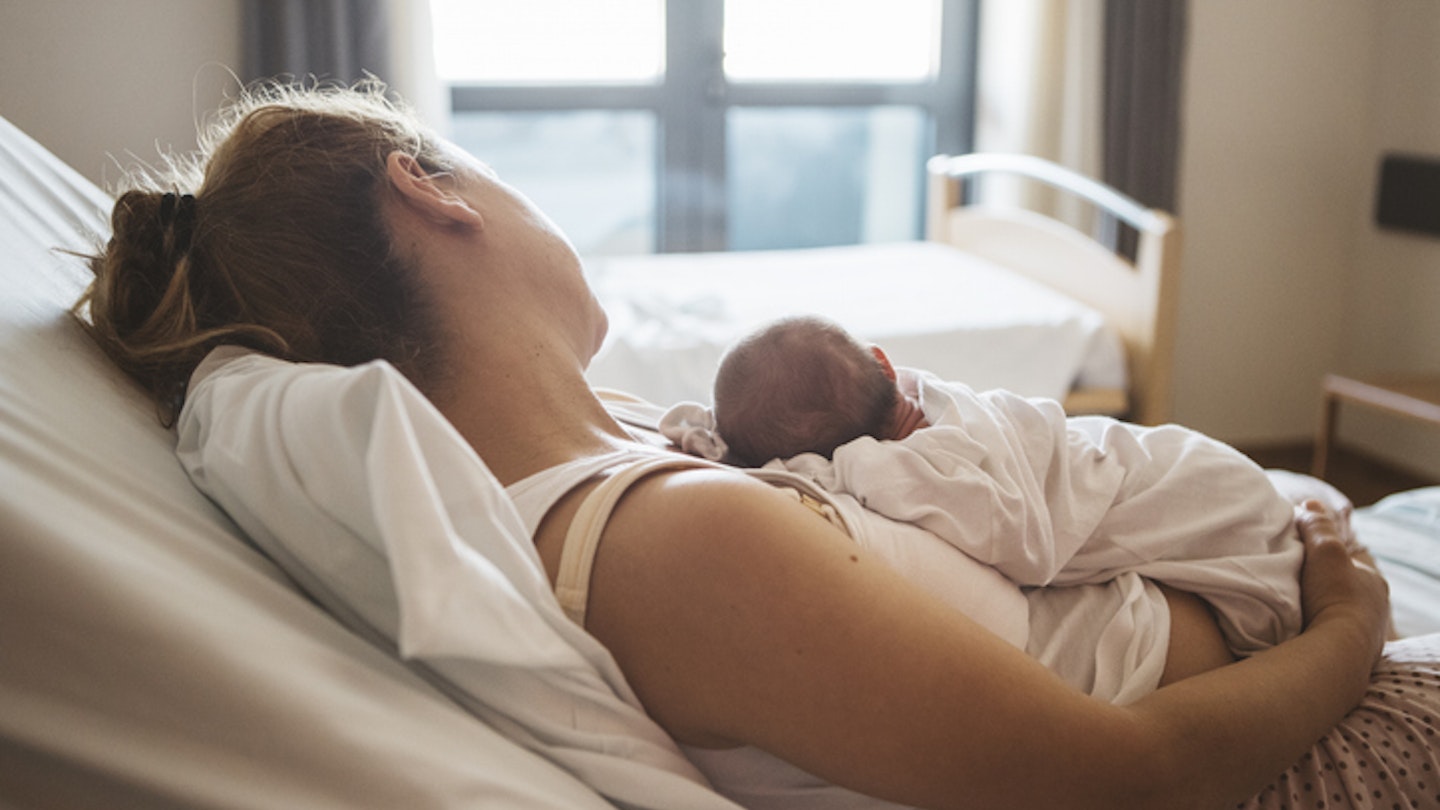From staffing issues to underfunding, it's no secret that our maternity services are in crisis. Now, a mother has been awarded more than half a million pounds in damages for life-changing injuries she suffered during childbirth.
Amy Stead, 37, from Wrexham had a traumatic birth experience in 2019 which left her with a tear so bad that she now has a permeant stoma. She told Sky News that she had a ‘hole between [my] vagina and rectum’ that was ‘completely missed’ because her obstetrician was ‘in such a rush to leave.’
‘Had she taken more time and care over what she was doing… she may have seen it, and they could have put me to sleep and repaired it properly,’ she said. ‘It felt like all the joy had been sucked out of having my first baby.’
Amy also suffered from PTSD and was left in pain for a year following the birth of her child. She is not alone. Research shows that up to 45% of women find some aspect of giving birth traumatic. Approximately one in 25 women develop postnatal PTSD – a severe mental health condition characterised by flashbacks, nightmares, depression, and anxiety.
Steads decided to sue the hospital, which was where she used to work. After a five-year litigation, she has now been awarded £575,000 in damages. Maternity services made up 13% of clinical negligence claims, more than any other department, according to figures for England for 2022/2023. Campaigners put this down to underfunding and overworked staff.
In 2022, the Royal College of Midwives (RCM) and leading UK pregnancy and baby loss charity Sands warned that a severe shortage of staff in maternity services is putting mothers and babies’ lives at risk. Meanwhile, 1 in 4 core NHS maternity services across the UK is currently rated as ‘inadequate’ or ‘requiring improvement.’
Kim Thomas, CEO of The Birth Trauma Association, tells Grazia that maternity litigation accounts for 65% of the NHS litigation budget, and last year maternity payments cost the NHS £4bn.
‘This is because some very large payouts, worth millions of pounds, are awarded to children with brain injuries sustained at birth, and the award pays for their lifetime of care. So many of these injuries are avoidable, however, and are the result of the same mistakes being made over and over again. Maternity staff often fail to listen to women when they say they think something is wrong, and sometimes that has catastrophic consequences,' she says. 'Much better training is needed so that staff can do their job effectively, and the NHS needs to be much better both at listening to women and sharing good practice.’
Stead hopes that speaking out about her story will help other mums who have been impacted by birth trauma. ‘No amount of money can change that or make that better, but it certainly helps,’ she told Sky News. ‘But you shouldn't have to go through that to have children, it's not normal.’
She joins the likes of Louise Thompson, who was diagnosed with PTSD and postnatal anxiety following the traumatic birth of her son Leo in 2021. Earlier this year, she revealed she had a stoma bag fitted after months of health problems.
Hannah Travis, Associate in the medical negligence team at Bolt Burdon Kemp, explains that birth injuries can often be missed when little care is given to the mother in the post birth period, either after delivery on the wards or once home.
'We hope and wish that the birth trauma inquiry will show the government the voices of those who have suffered, bringing real life stories to the fore to help bring about positive change to birth safety, what is needed to prevent birth trauma and what can be done to support in the pre and post-natal period,' she says.
A spokesperson for the Department for Health and Social Care told Sky News ‘We're committed to ensuring all women receive safe and compassionate care from maternity services and we've made progress in improving outcomes,’ adding ‘We are determined to further improve maternity services. That's why it is prioritised in our Women's Health Strategy 2024.’
